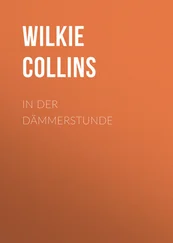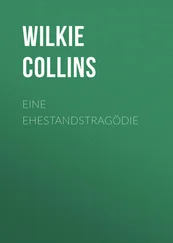William Wilkie Collins - Antonina
Здесь есть возможность читать онлайн «William Wilkie Collins - Antonina» — ознакомительный отрывок электронной книги совершенно бесплатно, а после прочтения отрывка купить полную версию. В некоторых случаях можно слушать аудио, скачать через торрент в формате fb2 и присутствует краткое содержание. Жанр: unrecognised, на английском языке. Описание произведения, (предисловие) а так же отзывы посетителей доступны на портале библиотеки ЛибКат.
- Название:Antonina
- Автор:
- Жанр:
- Год:неизвестен
- ISBN:нет данных
- Рейтинг книги:5 / 5. Голосов: 1
-
Избранное:Добавить в избранное
- Отзывы:
-
Ваша оценка:
- 100
- 1
- 2
- 3
- 4
- 5
Antonina: краткое содержание, описание и аннотация
Предлагаем к чтению аннотацию, описание, краткое содержание или предисловие (зависит от того, что написал сам автор книги «Antonina»). Если вы не нашли необходимую информацию о книге — напишите в комментариях, мы постараемся отыскать её.
Antonina — читать онлайн ознакомительный отрывок
Ниже представлен текст книги, разбитый по страницам. Система сохранения места последней прочитанной страницы, позволяет с удобством читать онлайн бесплатно книгу «Antonina», без необходимости каждый раз заново искать на чём Вы остановились. Поставьте закладку, и сможете в любой момент перейти на страницу, на которой закончили чтение.
Интервал:
Закладка:
‘Is it thus that the Christian can view his afflictions? I would, then, that I were a Christian like you!’ murmured the landholder, in low, earnest tones.
‘It was in those first days, Probus,’ continued the other, ‘when I found myself deserted and dishonoured, left alone to be the guardian of my helpless child, exiled for ever from a home that I had myself forsaken, that I repented me in earnest of my misdeeds, that I sought wisdom from the book of salvation, and the conduct of life from the Fathers of the Church. It was at that time that I determined to devote my child, like Samuel of old, to the service of heaven, and myself to the reformation of our degraded worship. As I have already told you, I forsook my abode and changed my name (remember it is as ‘Numerian’ that you must henceforth address me), that of my former self no remains might be left, that of my former companions not one might ever discover and tempt me again. With incessant care have I shielded my daughter from the contamination of the world. As a precious jewel in a miser’s hands she has been watched and guarded in her father’s house. Her destiny is to soothe the afflicted, to watch the sick, to succour the forlorn, when I, her teacher, have restored to the land the dominion of its ancient faith and the guidance of its faultless Gospel. We have neither of us an affection or a hope that can bind us to the things of earth. Our hearts look both towards heaven; our expectations are only from on high!’
‘Do not set your hopes too firmly on your child. Remember how the nobles of Rome have destroyed the household I once had, and tremble for your own.’
‘I have no fear for my daughter; she is cared for in my absence by one who is vowed to aid me in my labours for the Church. It is now nearly a year since I first met Ulpius, and from that time forth he has devoted himself to my service and watched over my child.’
‘Who is this Ulpius, that you should put such faith in him?’
‘He is a man of age like mine. I found him, like me, worn down by the calamities of his early life, and abandoned, as I had once been, to the delusions of the pagan gods. He was desolate, suffering, forlorn, and I had pity on him in his misery. I proved to him that the worship he still professed was banished for its iniquities from the land; that the religion which had succeeded it had become defiled by man, and that there remained but one faith for him to choose, if he would be saved— the faith of the early Church. He heard me and was converted. From that moment he has served my patiently and helped me willingly. Under the roof where I assemble the few who as yet are true believers, he is always the first to come and the last to remain. No word of anger has ever crossed his lips—no look of impatience has ever appeared in his eyes. Though sorrowful, he is gentle; though suffering, he is industrious. I have trusted him with all I possess, and I glory in my credulity! Ulpius is incorruptible!’
‘And your daughter?—is Ulpius reverenced by her as he is respected by you?’
‘She knows that her duty is to love whom I love, and to avoid whom I avoid. Can you imagine that a Christian virgin has any feelings disobedient to her father’s wishes? Come to my house; judge with your own eyes of my daughter and my companion. You, whose misfortunes have left you no home, shall find one, if you will, with me. Come then and labour with me in my great undertaking! You will withdraw your mind from the contemplation of your woes, and merit by your devotion the favour of the Most High.’
‘No, Numerian, I will still be independent, even of my friends! Nor Rome nor Italy are abiding-places for me. I go to another land to abide among another people, until the arms of a conqueror shall have restored freedom to the brave and protection to the honest throughout the countries of the Empire.’
‘Probus, I implore you stay!’
‘Never! My determination is taken, Numerian—farewell!’
For a few minutes Numerian stood motionless, gazing wistfully in the direction taken by his companion on his departure. At first an expression of grief and pity softened the austerity which seemed the habitual characteristic of his countenance when in repose, but soon these milder and tenderer feelings appeared to vanish from his heart as suddenly as they had arisen; his features reassumed their customary sternness, and he muttered to himself as he mixed with the crowd struggling onwards in the direction of the basilica: ‘Let him depart unregretted; he has denied himself to the service of his Maker. He should no longer be my friend.’
In this sentence lay the index to the character of the man. His existence was one vast sacrifice, one scene of intrepid self-immolation. Although, in the brief hints at the events of his life which he had communicated to his friend, he had exaggerated the extent of his errors, he had by no means done justice to the fervour of his penitence—a penitence which outstripped the usual boundaries of repentance, and only began in despair to terminate in fanaticism. His desertion of his father’s house (into the motives of which it is not our present intention to enter), and his long subsequent existence of violence and excess, indisposed his naturally strong passions to submit to the slightest restraint. In obedience to their first impulses, he contracted, at a mature age, a marriage with a woman thoroughly unworthy of the ardent admiration that she had inspired. When he found himself deceived and dishonoured by her, the shock of such an affliction thrilled through his whole being—crushed all his energies—struck him prostrate, heart and mind, at one blow. The errors of his youth, committed in his prosperity with moral impunity, reacted upon him in his adversity with an influence fatal to his future peace. His repentance was darkened by despondency; his resolutions were unbrightened by hope. He flew to religion as the suicide flies to the knife—in despair.
Leaving all remaining peculiarities in Numerian’s character to be discussed at a future opportunity, we will now follow him in his passage through the crowd, to the entrance of the basilica—continuing to designate him, here and elsewhere, by the name which he had assumed on his conversion, and by which he had insisted on being addressed during his interview with the fugitive landholder.
Although at the commencement of his progress towards the church, our enthusiast found himself placed among the hindermost of the members of the advancing throng, he soon contrived so thoroughly to outstrip his dilatory and discursive neighbours as to gain, with little delay, the steps of the sacred building. Here, in common with many others, he was compelled to stop, while those nearest the basilica squeezed their way through its stately doors. In such a situation his remarkable figure could not fail to be noticed, and he was silently recognised by many of the bystanders, some of whom looked on him with wonder, and some with aversion. Nobody, however, approached or spoke to him. Every one felt the necessity of shunning a man whose bold and daily exposures of the abuses of the Church placed in incessant peril his liberty, and even his life.
Among the bystanders who surrounded Numerian, there were nevertheless two who did not remain content with carelessly avoiding any communication with the intrepid and suspected reformer. These two men belonged to the lowest order of the clergy, and appeared to be occupied in cautiously watching the actions and listening to the conversation of the individuals immediately around them. The instant they beheld Numerian they moved so as to elude his observation, taking care at the same time to occupy such a position as enabled them to keep in view the object of their evident distrust.
‘Look, Osius,’ said one, ‘that man is here again!’
Читать дальшеИнтервал:
Закладка:
Похожие книги на «Antonina»
Представляем Вашему вниманию похожие книги на «Antonina» списком для выбора. Мы отобрали схожую по названию и смыслу литературу в надежде предоставить читателям больше вариантов отыскать новые, интересные, ещё непрочитанные произведения.
Обсуждение, отзывы о книге «Antonina» и просто собственные мнения читателей. Оставьте ваши комментарии, напишите, что Вы думаете о произведении, его смысле или главных героях. Укажите что конкретно понравилось, а что нет, и почему Вы так считаете.












